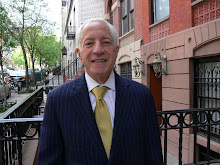Richard Brinsley, an Irish playwright and Whig statesman, wrote “Take care; you know I am compliance itself, when I am not thwarted! No one more easily led, when I have my own way; but don't put me in a frenzy.” These days, compliance is on the lips and minds of every CFO. Morality aside (just for the moment), the civil and criminal penalties companies and their officers are exposed to when fiduciary responsibility is breached is cause for frenzy. So forgive me if I preach to the choir.
By now, we all know it's desperately important to have a comprehensive compliance program. More important is the need to develop a corporate culture of trust. If employees believe "something smells in Denmark", but trust that senior management would deal with it if they were made aware, they are more likely to have the matter dealt with internally.
In a blog published May 13th in the Wall Street Journal, entitled "I Didn’t Want to Be Responsible for Somebody Dying’: Whistleblower" deals with the the impact of pharma-industry whistleblowers on that industry, which paid out more than $6 billion to settle whistleblower-initiated federal cases between Jan. 2001 and March 2009. Of 26 whistle-blowers interviewed for a New England Journal of Medicine story, all but four said that before going to authorities they first took their complaints to higher-ups.
So, the moral is: develop a culture of trust; pay attention to what's happening in your organization; pay attention to the merest whisper of wrong-doing; and deal with it before it evolves into a catastrophe.
15 years ago




No comments:
Post a Comment